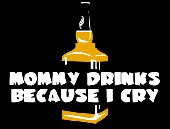|
|
 |
 |
 |
 |
register |
bbs |
search |
rss |
faq |
about
|
 |
 |
meet up |
add to del.icio.us |
digg it
|
 |

|
Credit Billing Errors
Facts for Consumers from the Federal Trade Commission
Credit Billing Errors -- November 1992
At certain times of the year, you may find yourself facing
particularly large credit card bills. At those times especially,
the Federal Trade Commission (FTC) advises you to review your
billing statements with care.
Credit card billing errors do occur, but they are simple to
resolve if you know how to use the Fair Credit Billing Act
(FCBA). Under this law, you must send the creditor a written
notice about the problem to avoid paying for any charges you
dispute. Many consumers forfeit their rights under this Act
because they rely on calling the company to correct a billing
problem. You may call if you wish, but phoning does not trigger
the legal safeguards provided under the FCBA.
To take full advantage of your rights under the law, this is what
you need to do.
1. Write to the bank, the financial institution, or retailer who
issued the card. Your letter must be received within 60 days
after the issuer mailed you the first bill containing the error.
In your letter include: your name and account number; the date,
type, and dollar amount of the charge you are disputing; and why
you think there was a mistake.
2. Be sure to send the letter to the special address for billing
inquiries, as designated by the card issuer. You frequently can
find the proper address on your bill under a heading such as
"send inquiries to."
3. Do not put your letter in the same envelope as your payment.
To be sure the card issuer receives your letter, you may wish to
send it by certified mail.
If you follow the previous requirements, this is what the
creditor is required to do.
1. Acknowledge your letter in writing within 30 days after it is
received, unless the problem has been resolved within that time.
2. Conduct a reasonable investigation and, within no more than 90
days, either explain why the bill is correct or correct the
error.
3. Include documents showing that the charge was correct, if the
creditor states the bill is correct and you asked for "proof" in
your letter.
Under the FCBA, the card issuer cannot close your account just
because you disputed a bill under the law.
If you continue to have problems with the card issuer, you might
wish to seek legal advice or contact your local consumer
protection agency. For more information about this law, contact
the FTC for a free brochure. Write: "Fair Credit Billing," Public
Reference, Federal Trade Commission, Washington, D.C. 20580.
1/82; 5/88
|

|
 |
To the best of our knowledge, the text on this page may be freely reproduced and distributed.
If you have any questions about this, please check out our Copyright Policy.

totse.com certificate signatures
|
 |
 |
About | Advertise | Bad Ideas | Community | Contact Us | Copyright Policy | Drugs | Ego | Erotica
FAQ | Fringe | Link to totse.com | Search | Society | Submissions | Technology
|
 |
 |
 |
 |
|

